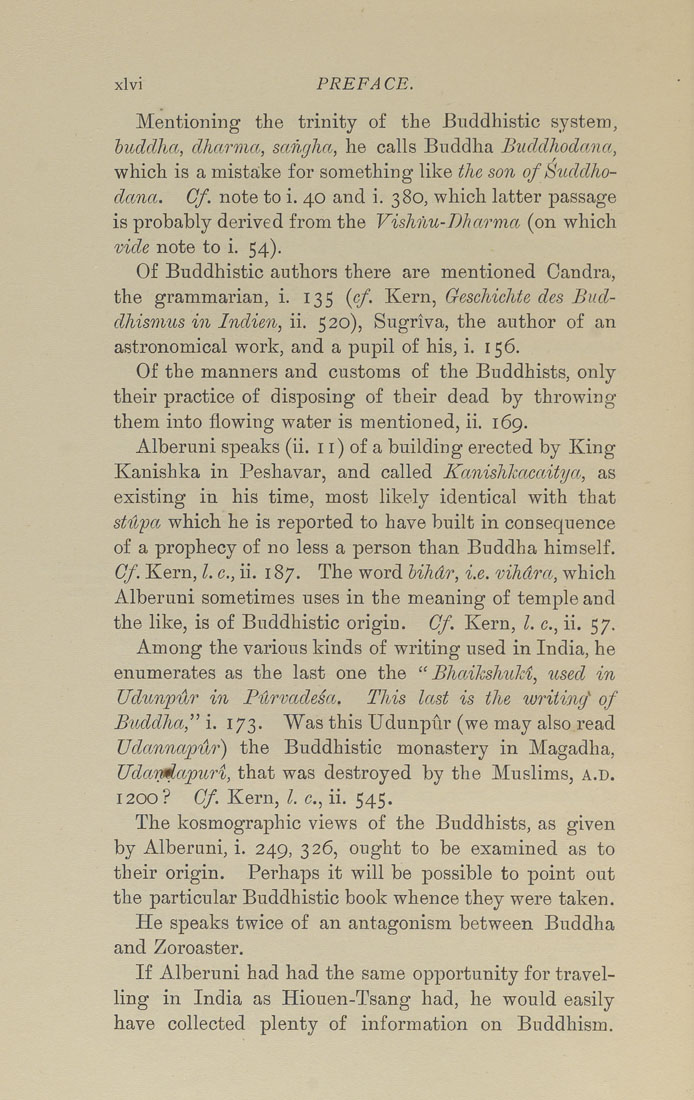xlvi PREFA CE.
Mentioning the trinity of the Buddhistic system,
huddha, dharmct, sangha,, he calls Buddha Buddhodana,
which is a mistake for something like the son of Suddho-
dccna. Cf. note to i. 40 and i. 380, which latter passage
is probably derived from the Vishiiu-Dharma (on which
vide note to i. 54).
Of Buddhistic authors there are mentioned Candra,
the grammarian, i. 135 (cf. Kern, Geschichte des Bud¬
dhismus in Indien, ii. 520), Sugriva, the author of an
astronomical work, and a pupil of his, i. 156.
Of the manners and customs of the Buddhists, only
their practice of disposing of their dead by throwing
them into flowing water is mentioned, ii. 169.
Alberuni speaks (ii. 11) of a building erected by King
Kanishka in Peshavar, and called Kanishkacaitya., as
existing in his time, most likely identical with that
stUyct which he is reported to have built in consequence
of a prophecy of no less a person than Buddha himself.
Cf. Kern, /. c, ii. 187. The word hihdr, i.e. vihdra, which
Alberuni sometimes uses in the meaning of temple and
the like, is of Buddhistic origin. Cf Kern, I. c, ii. 57.
Among the various kinds of writing used in India, he
enumerates as the last one the " Bhaikshukt, used in
Udunpilr in Purvadesa. This last is the writing^ of
Buddha," i. 173. Was this Udunpur (we may also read
Udannap4r) the Buddhistic monastery in Magadha,
Udccr/iapuri, that was destroyed by the Muslims, a.d.
1200? Cf Kern, /. c, ii. 545.
The kosmographic views of the Buddhists, as given
by Alberuni, i. 249, 326, ought to be examined as to
their origin. Perhaps it will be possible to point out
the particular Buddhistic book whence they were taken.
He speaks twice of an antagonism between Buddha
and Zoroaster.
If Alberuni had had the same opportunity for travel¬
ling in India as Hiouen-Tsang had, he would easily
have collected plenty of information on Buddhism.
|








